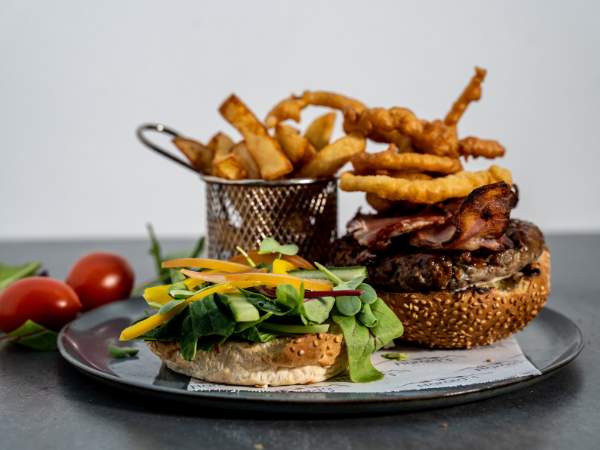News
The impact of COVID on sustainability
Saturday, October 17th, 2020The “new normal” – that ubiquitous phrase on everyone’s lips as people the world over struggle to envision the realities of a post-COVID world – speaks of change and adaptation, the fact that life as we know it can and never will be the same. But what does this mean for the wellbeing of our planet? As consumers gravitate towards a “low touch” way of life, increasing their reliance on single-use items in order to minimise the risk of aiding the spread of the virus that has led to the worldwide pandemic, it is easy to put concern around sustainability and caring for the planet to one side while we grapple with the more imminently pressing issue of living through a global pandemic.
For Christiaan Campbell, former executive head chef at Boschendal Wine Estate and passionate sustainability consultant, under whose guidance the estate’s Die Werf restaurant was awarded the 2018 Eat Out Woolworths Sustainability Award, it all still comes down to the informed choices that not only restaurants but also consumers make in our quest to minimise the spread of and exposure to the virus. From the producers and restaurants we support to what we buy, where we buy it and how we process or dispose of it – every choice we make is a chance to ensure that the new normal is a move towards securing the future of our food, health and planet.

“When it comes to dining at a restaurant or sourcing ingredients, one needs to take in consideration the effect it has on people as well as the ecology,” says Christiaan. Even when compostable products and packaging are used instead of the less eco-friendly plastic options for single-use items such as takeaway boxes and utensils, it is still important to ensure that these items are correctly recycled. “Just because you are using compostable products, it doesn’t let you off the hook,” he cautions. “Compostable items that end up in the ocean, for example, are just as bad [for the environment] as their plastic alternatives.” He admits that he’s a bit sceptical of items produced from polylactic acid (PLA), as they might be a popular eco-friendly alternative to plastic, but these items need to be properly processed in industrial-type composting systems to be properly broken down. It ultimately comes down to the user, be it a business or homeowner, taking full ownership of the life cycle of that product.

Sustainability is about more than plastic
For Christiaan, though, an area that has been largely overlooked when envisioning the necessary changes in our world in the wake of COVID-19, are the greater issues surrounding the health of the nation and our food systems. When we consider the fact that our country ranked dead last out of over 150 countries in the 2019 Indigo Wellbeing Index, it becomes clear that there is significant room for improvement when it comes to our overall health. The centralised nature of industrial agriculture – the grouping of large amounts of animals in extreme close proximity in feedlots and battery farms to be processed in large central abattoirs – also means that the spreading of not just the coronavirus but any infectious disease becomes a very real problem. “Diversity builds resilience,” he emphasises. “Our food supply chain over the last 60 years has become more and more centralised. This makes the food system very vulnerable to collapse, as seen in the USA during the COVID crisis where there was a shortage of meat and other produce due to this centralised system.”
This is where the importance of establishing and supporting a decentralised and multifaceted food chain is crucial, a system that is regenerative as opposed to reductive.
“As customers, consumers and guests, we can choose to support a system that works with nature … to support small producers delivering authentic products, support local industries that have strong social, ecological and governance principles,” he emphasises. Consider sourcing your weekly produce from small, local suppliers and farmers who use sustainable and regenerative practices – not only will this allow a move away from a clearly perilous agricultural monoculture but the higher nutrient density in these authentically produced foods are an added plus in a time when immune strength is utmost in everyone’s minds.

It is very much in this spirit of true sustainability that Christiaan decided to build a diverse network of like-minded people – farmers, regenerative agriculture specialists and environmental organisations dedicated to soil health, plant health and ethical animal husbandry. Living Exchanges aims to promote the need and benefit of healthy food and its positive effect on soil and society.
COVID-19’s crippling effect on the world could just be the reset button that we, not only consumers, but custodians of Earth, needed. We have the power to create the world that we want to live in, a world that is resilient, a food supply that is secure and regenerative and which celebrates and promotes biodiversity. “People and nature are living systems and to bring out the best in both, the principles of regeneration need to be embraced,” he concludes. In order to return to the freedom of our pre-COVID lives, it is crucial that our new normal reflects the world as we need it to be.









